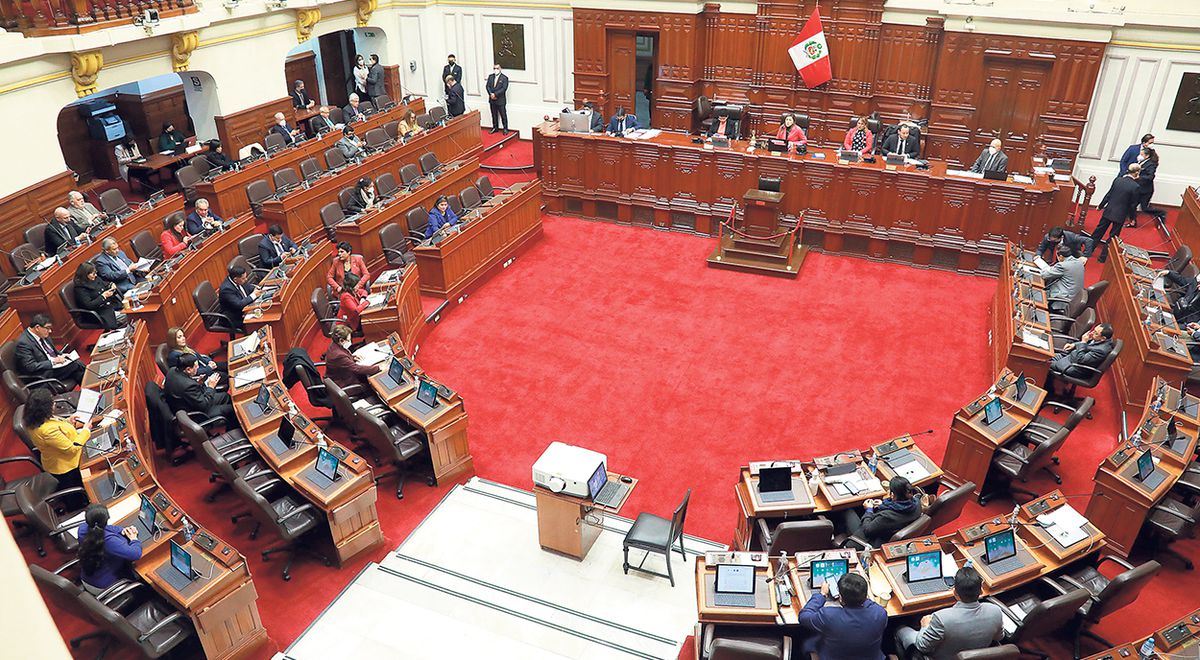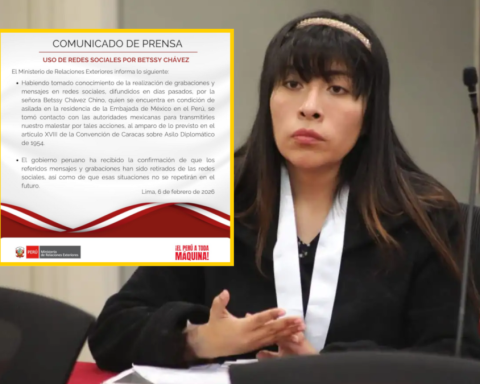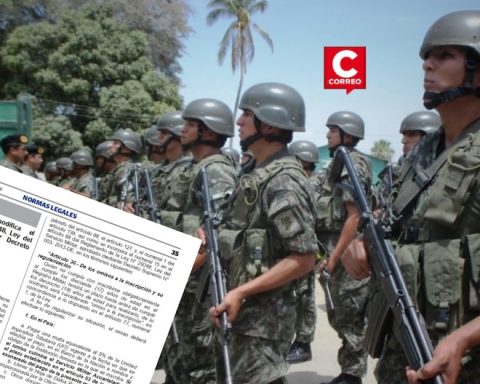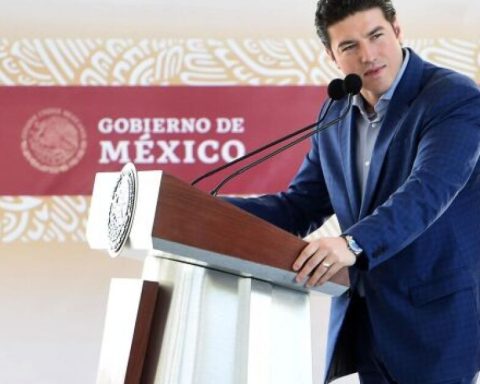Around midnight last Thursday, the Congress approved a law to repeal a supreme decree of the Executive Power on the Teacher Spill. The issue went directly to the Plenary without an opinion or analysis of the commission and in a process that could be described as illegal and even unconstitutional.
The President of the Parliament, Lady Camones (APP), showed special interest in drawing up this norm, which comes from a Popular Force bill, without listening to the claims of the congressmen about possible legal vices.
The norm in question is Project 2601, authored by Martha Moyano and David Jiménez (Popular Force), who proposed to promote the repeal of Supreme Decree 009-2022 of the Ministry of Education, in relation to the form of election of the board of directors of the Magisterial Spill.
The project was already approved in the plenary session on Thursday, with 65 votes from Fuerza Popular, Alianza para el Progreso (APP), Popular Renewal (RP), Avanza País and María Alva’s block of Popular Action.
These groups adopted the decision on the grounds that the president Pedro Castillo tries to capture the Magisterial Spill, through the Fenate.
From the other shore, the leftist legislators stated that the norm aimed at democratizing said entity.
If the norm issued by the Castillo Government was bad, the way in which the Congress he was brought down also faces serious questions.
Retired Signatures
On July 14, the spokesmen of seven benches had signed an act for the exoneration of commission and opinion of the fujimorist project.
In other words, Project 2601 would go directly to the Plenary, without a technical study by the Education Commission or an opinion.
On Thursday, between twelve noon and six in the afternoon, three benches decided to withdraw their signatures from the exemption agreement; this so that the fujimorista project is first analyzed in commission. But Lady Camones (APP) chose to continue with the Fujimori agenda, without attending the three offices.
The Regulations of the Congress establish that in order to exonerate a project from commission and opinion, the minutes must have the signatures of spokespersons of the caucuses adding a minimum of 78 votes.
But with the withdrawal of the signatures of the three benches (Acción Popular, Somos Perú and Podemos Perú), support for the exoneration was reduced to only 57 votes. In good account, the regulation was no longer complied with, regarding the 78 votes.
The constitutionalist Beatriz Ramírez considers that there was an infraction against the Regulations of Congress and against the Constitution itself.
The opinion of the specialist José Naupari is different, who considers that the agreement of July 14 has already been executed with the inclusion of the issue on the agenda and there is only room for reconsideration to return to committee.
Beatriz Ramírez replies by mentioning that the execution of that agreement only materializes when the issue enters the plenary for debate. Yesterday, when this happened, the three benches had already materialized the withdrawal of the signatures.
Constitutionalist Edward Dyer adds that the constitutional Court It has already set a standard, by establishing that the strength of the votes is not enough to avoid reflection in commissions and, furthermore, there must be support for the exoneration.
Rejected documents
Withdrawal of signatures from Somos Perú, AP and Podemos dismissed by Lady Camones.
















